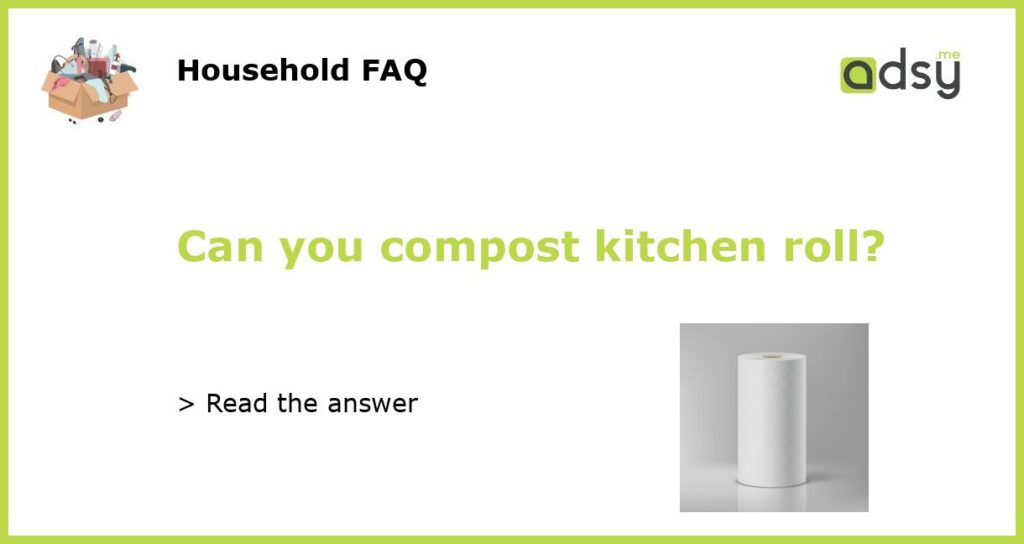What is kitchen roll and why compost it?
Kitchen roll, also known as paper towel, is a absorbent paper used for cleaning up spills or wiping surfaces. It is made from a combination of softwood and hardwood trees, and is usually not recyclable due to the fact that it is often soiled with food and cleaning products. Composting kitchen roll is a sustainable alternative to throwing it away as trash, as it can be turned into valuable fertilizer for plants and gardens.
Is kitchen roll safe for composting?
Yes, kitchen roll is safe for composting as long as it is not contaminated with any harmful chemicals or substances. It is important to note that colored or printed paper towel should be avoided, as the ink and dyes used on the paper can be toxic to organisms in the compost heap. Plain white kitchen roll is the safest option for composting.
How to compost kitchen roll?
Composting kitchen roll is easy and can be done in a few simple steps. First, tear the kitchen roll into small pieces and add it to the compost pile. It is important to mix the kitchen roll with other compostable materials, such as vegetable scraps or leaves, to ensure that the compost heap remains balanced and has enough carbon and nitrogen for decomposition. It is also important to keep the compost pile moist and turn it regularly to promote aeration and decomposition.
What are the benefits of composting kitchen roll?
Composting kitchen roll is a sustainable way to dispose of waste while also producing valuable fertilizer for plants and gardens. The compost created from kitchen roll can improve soil health, increase nutrient availability, and reduce the need for chemical fertilizers. Additionally, composting kitchen roll can help reduce greenhouse gas emissions by diverting waste from landfills, which are a major source of methane gas.
Composting kitchen roll is a simple and sustainable way to reduce waste and produce valuable fertilizer for plants and gardens
Composting kitchen roll is a safe and practical solution for disposing of waste while also promoting sustainability and reducing greenhouse gas emissions. By following a few simple steps, anyone can compost their kitchen roll and help create a more sustainable future.






